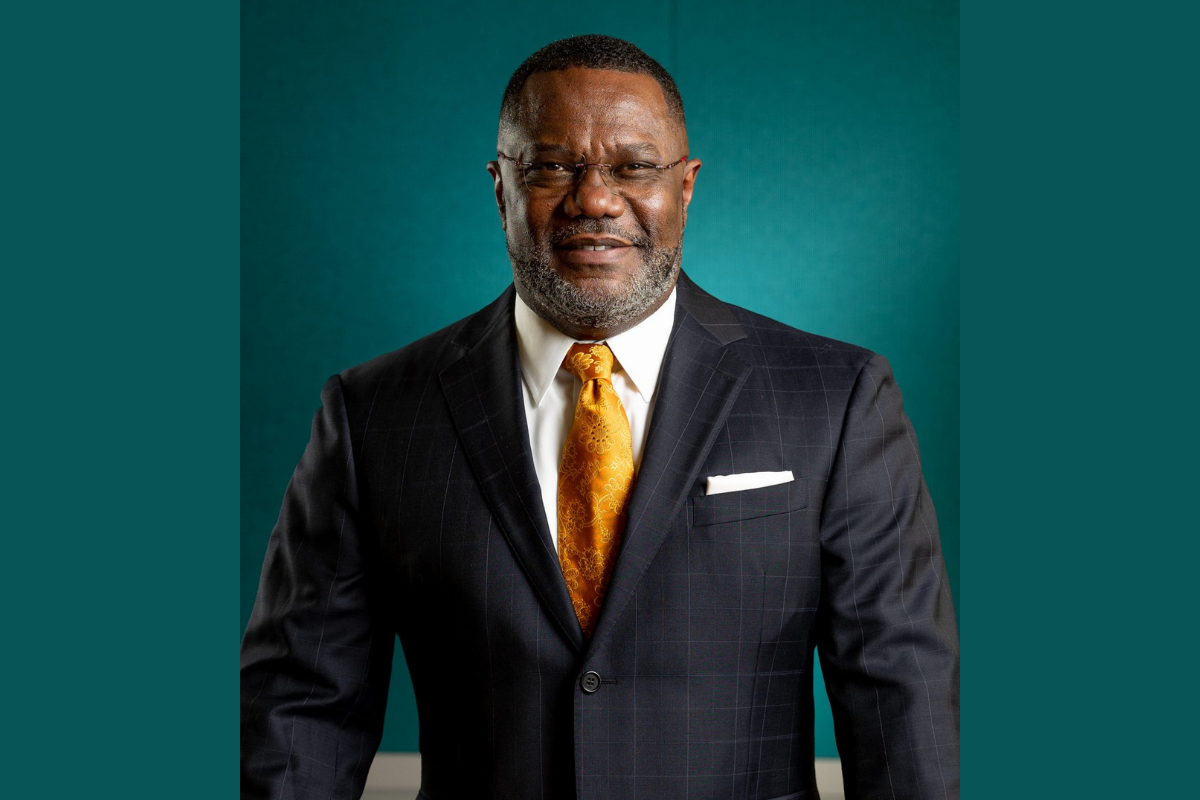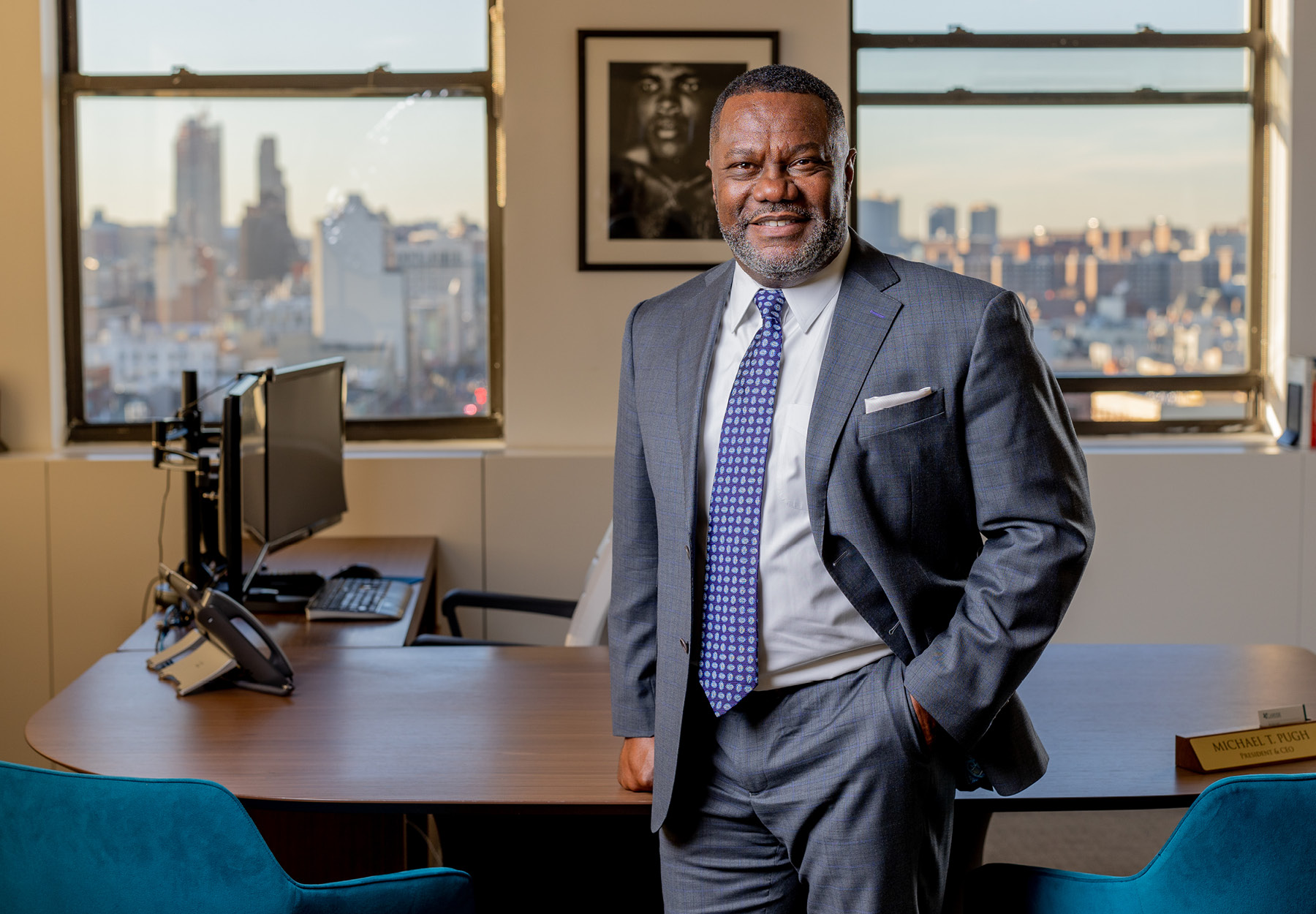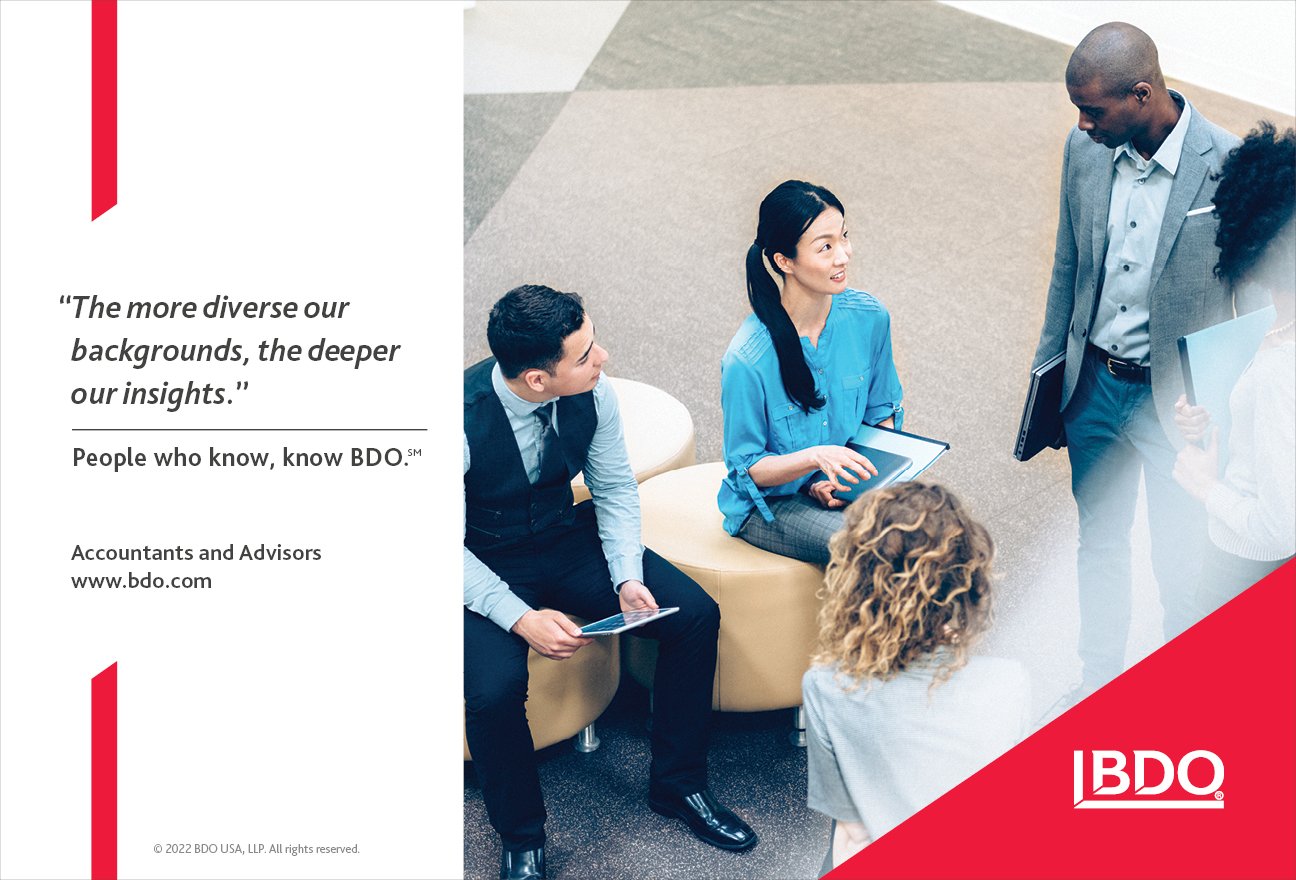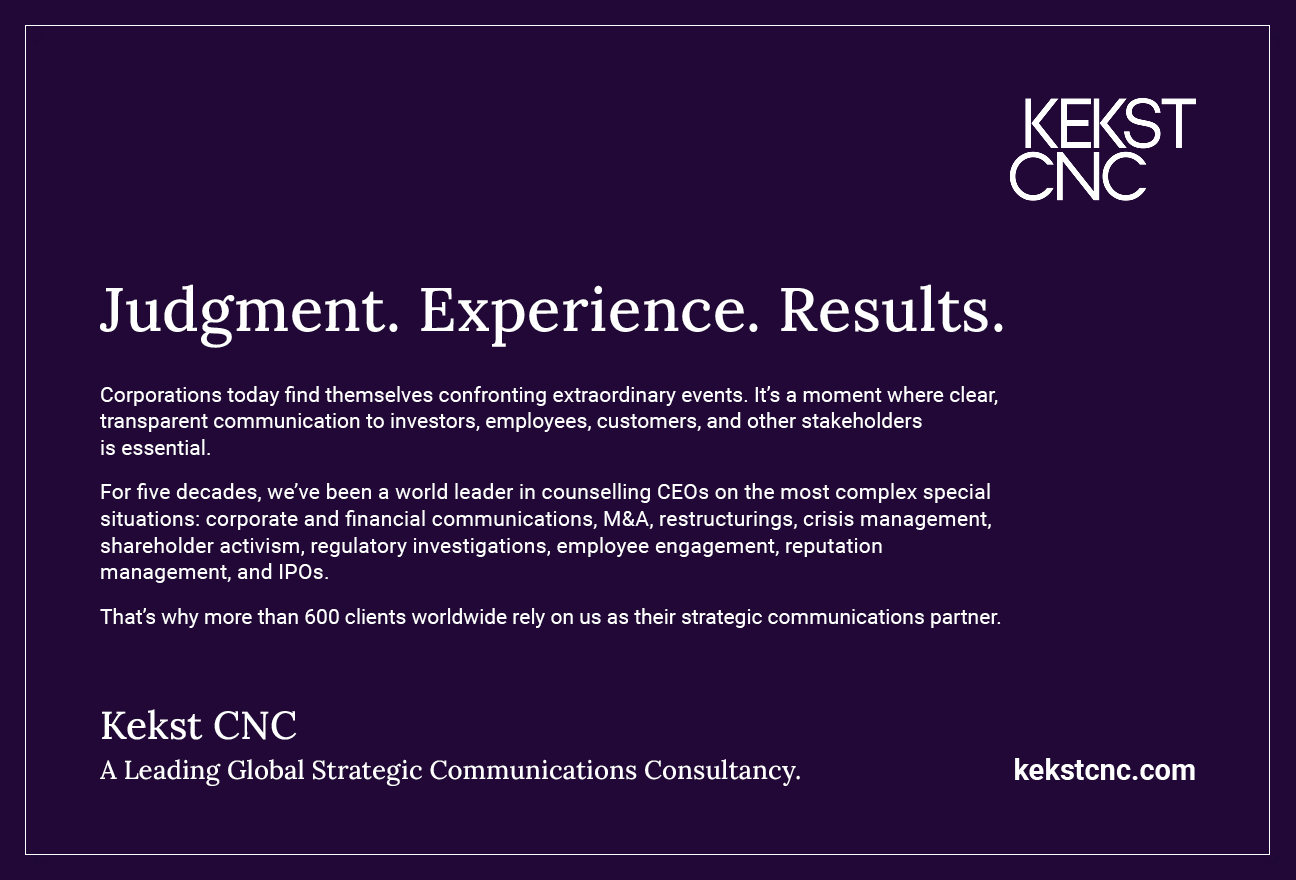Michael T Pugh comes from a family of healthcare providers. At home when he was a child, conversations around the dinner table were often about how his family members were helping patients and communities. “There was a lot of discussion about interactions with families,” he recalls. “So what I gathered from all of that – what was instilled in me – was the value of helping others, and that this is one of the most critical reasons that we’re here.”

At first, Pugh thought that would mean following in his family’s footsteps with a career in health care. He did his undergraduate degree in healthcare administration at Eastern Michigan University and began working in a nursing home with a physical therapist. However, he soon realized that path wasn’t for him.
“Oftentimes you’d see one of your patients, you’d have a great conversation, you’d go home, then you’d come back and the patient was no longer there. That person had passed,” he shares. “That was a bit too much reality in my very early 20s to deal with.”
When you start having conversations about financial education, tools and resources to budget better, then you can help families build wellness and achieve their goals.
But Pugh never lost his commitment to the underlying principles instilled in him at the dinner table, and he began looking for other ways he could be a part of providing solutions to people and their communities.
As it happened, he had been funding his university education by working as a bank teller, during which time he learned about the relationship between finance and human wellbeing.
That realization led him into a career in banking and finance that has spanned nearly 30 years. “As I started to see that light in the eyes of some of my customers, I knew that I wanted to be a part of the financial services industry, because there’s a special place there that if you’re really focused on impact and changing lives, you can be a part of wellness in a very different way,” he adds.
Pugh cut his teeth at Citizens Financial Group, which at the time was owned by the Royal Bank of Scotland, where he had the opportunity to be mentored in several different roles. He then moved to Capital One, where he worked with data scientists, strategists and customer experience experts who helped him broaden his knowledge of the industry further.
The more he progressed in his career, however, the more Pugh felt he was losing contact with the very customers who had inspired him to pursue a vocation in financial services in the first place.
We know that talent is not one of those things that’s selective. Everyone has certain talents. The difference is opportunity and whether things are made available for us.
“I was seeing that in many cases I was often the first,” he says. “I may have been the youngest in the room, I may have been the first African American to be in certain roles, or certainly one of very few. And the bigger the organization, the bigger the responsibility I had, the fewer opportunities I was seeing in terms of being able to help others – to pull them along the way so that they too could have opportunities.
“We know that talent is not one of those things that’s selective. Everyone has certain talents. The difference is opportunity and whether things are made available for us.”
Ten years ago, Pugh met with the then-Chair and CEO of Carver Federal Savings Bank, one of the largest African American and Caribbean American-managed banks in the US, which has seven branches across New York City. Carver was founded in 1948 to serve African American communities that were historically excluded from traditional financial services. Today, it remains focused on helping those who are often denied access to loans and other products by larger institutions.
“I got to learn about the mission of the organization and see the light in the eyes of the team as they talked about small business solutions and helping entrepreneurs achieve their goals,” he remembers. “I went home and talked to my family and knew I wanted to be a part of that. Here I am 10 years later, still a part of it.”

Pugh was promoted to CEO in 2015, and he has since overseen a digitalization drive that has helped expand the hyperlocal community bank’s reach to nine states. “When I joined the organization we were low on technology, and we have now spent significant amounts of capital, time and effort on reshaping this institution,” he reveals. “Today, we have things like the mobile banking app, and our digital platform is in nine states.”
The bank now has its sights set on entering all of the US’s top 30 federally designated metropolitan statistical areas. Pugh has also pursued strategic partnerships with larger financial institutions like JPMorgan Chase and Wells Fargo to give Carver’s customers access to more than 76,000 ATMs throughout the country.
“So a community bank like Carver, with a 73-year rich history and seven branches, can now tell our customers: ‘You can bank on the go with your smart devices. You have access to more than 76,000 ATMs nationally. And by the way, your friends and family members in nine states can start a bank relationship and join us in the mission of reinvesting in the communities that we serve,’” Pugh explains.
I was very proud to be a part of that congressional testimony. It really focused on how to respond to the pandemic, in terms of supporting small businesses, and how we get to a better state of equality.
“We weren’t going to be the bank that’s on every corner, especially with expensive New York City real estate, but we knew that we needed to continue to find ways to support our customers.”
While Carver may not have a large physical presence, it offers a quality of relationship with customers that many of its bigger competitors cannot. Small entrepreneurs who bank there can pick up the phone and quickly get through to someone with the ability to make decisions about their accounts.
“That’s what we offer as a community development financial institution and a hyperlocal bank,” he says. “It’s different than: ‘Gee, I can go to the bank branch on every corner, but there may not be anyone there empowered to make an immediate decision about helping me while I’m trying to decide if I can stay open or not.’”
As Carver’s services become more widely available through digital platforms, ensuring this level of human contact and access to decision-makers will be a delicate balance and one of Pugh’s key challenges.
Since the death of George Floyd in 2020, there has been a renewed focus on supporting Black and minority businesses across the US as part of broader calls for social justice and equality for African Americans. Pugh has not shied away from addressing this topic, and he even spoke before Congress in the wake of the killing.
Pugh sees Carver, and the financial services industry more generally, as playing an important role in this push for change. The bank has for decades supported an ecosystem of minority-owned small businesses, many of which were founded by Black people who were denied jobs despite being highly qualified, or were founded to serve customers who were denied service at white-owned businesses.
“If you think about communities across the country, and certainly even at a global scale, one of the most important things that you see is that there is an ecosystem created within communities,” he says. “That ecosystem is where communities are doing business with each other. They are helping their neighborhoods thrive by continuing to do business.
There are many small businesses out there – talented people that happen to be folks of color – and through supporting their businesses, it ultimately helps our nation as a whole to do much better.
“What we found is that, especially in this country, particularly during the civil rights era, many people of color were not able to find jobs that were high paying, despite their skills, despite being able to achieve education. What they started to do was create their own businesses. And in many cases, just because of the color of your skin, you couldn’t go to some mainstream places for the services that you needed. So you started to do business with people that looked like you and had started their own small businesses.”
Those ways of doing business still exist in many places, Pugh notes, and continue to add a large amount of value to the national economy by providing outlets for entrepreneurial talent to thrive.

“I think what we’re reminding others about through the Buy Black initiative is that there are many small businesses out there – talented people that happen to be folks of color – and through supporting their businesses, it ultimately helps our nation as a whole to do much better,” he reflects.
Carver’s commitment to diversity and inclusion goes beyond support for minority-owned businesses. One of the bank’s founding members was a woman, which was groundbreaking in 1948, and women continue to be well-represented among its staff and in leadership positions.
“It’s woven into the fabric of who we are and what we do as an institution,” Pugh explains. “I have the distinct privilege and opportunity to carry on the tradition. The reason this matters so much to me to see women play a critical role in leadership, in entrepreneurship, is because I had fantastic examples of this growing up.” One of Pugh’s aunts, for example, launched her own home healthcare company serving high-profile customers in Michigan.
About 62 per cent of Carver’s workforce are women, while women make up 55 per cent of the company’s leadership roles, and there are two women on the board of the directors. “We certainly are hyper-focused on finding and recruiting additional women leaders that will be part of our board,” Pugh says. “We’ve done well in terms of continuing to think about women in leadership roles across all levels of this organization, and that’s because of our history and the importance of having diversity as a core part of our business.”
We’ve done well in terms of continuing to think about women in leadership roles across all levels of this organization, and that’s because of our history and the importance of having diversity as a core part of our business.
Carver worked with a woman-owned fintech company, Boss Insights, to provide small business loans in response to a US federal stimulus, the Paycheck Protection Program. The initiative assisted with the preservation of more than 5,000 jobs in Greater New York City. Carver’s efforts to leverage woman-owned fintech partnerships continue with a new initiative that will provide access to capital for entrepreneurs who aren’t able to get funding with traditional credit scores. The initiative is funded with a US$1.5 million loan from the telecommunications company Charter Communications, and it will allow businesses to apply for funding with credit characteristics that go beyond those covered on their FICO credit scores. For example, they may be eligible for funding if they can show they’ve made their mortgage or lease payments on time or paid their utility bills regularly.
Given that more than 41 million Americans either don’t have a traditional credit score or don’t have a score that would allow them to apply for traditional credit, Pugh sees this fund as vital to the economy to reimagine ways of providing access to capital. “I think this partnership is a great example of what we do,” he says. “We deliver solutions that are much needed in the community.”
Proudly supported by:




